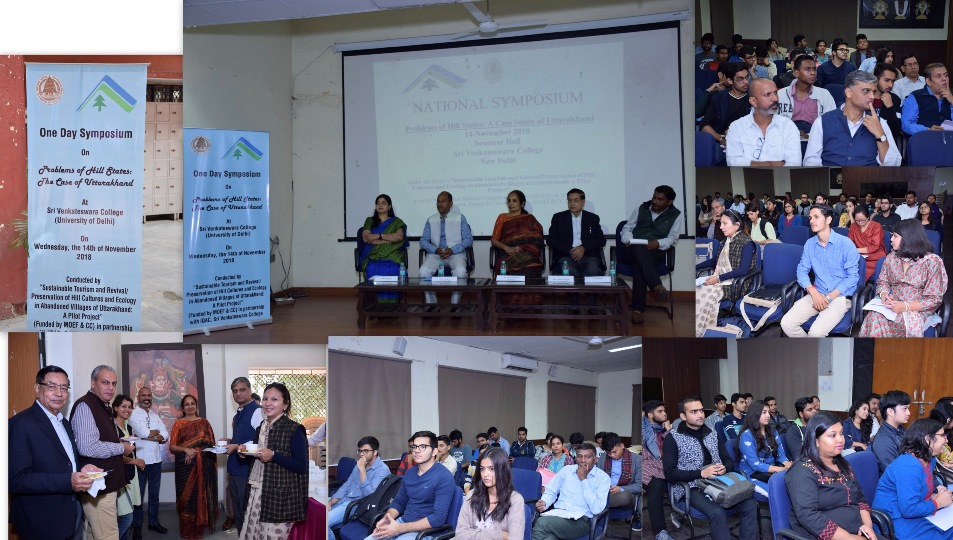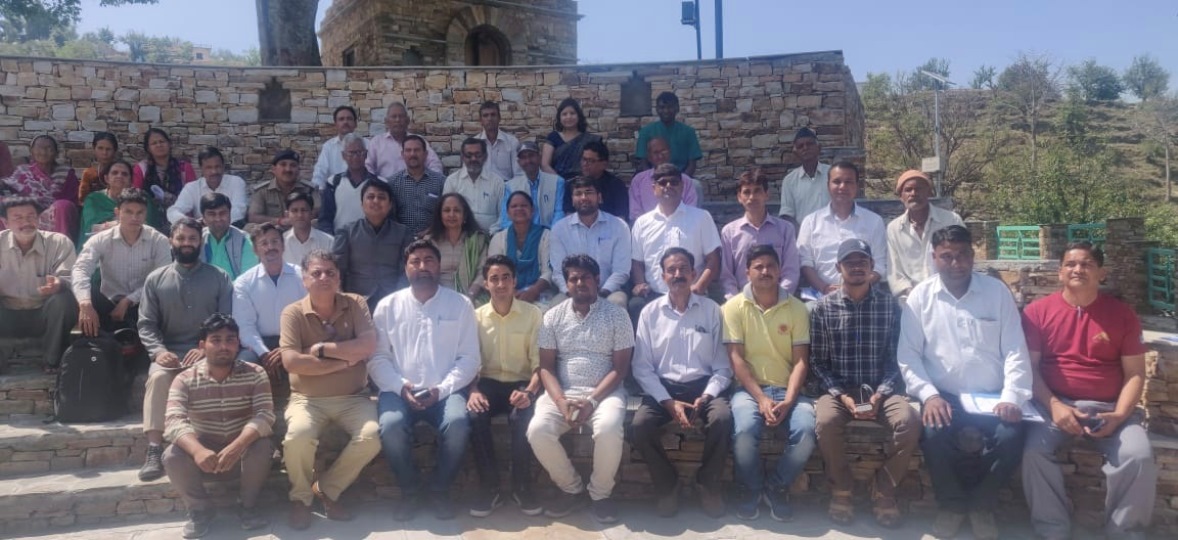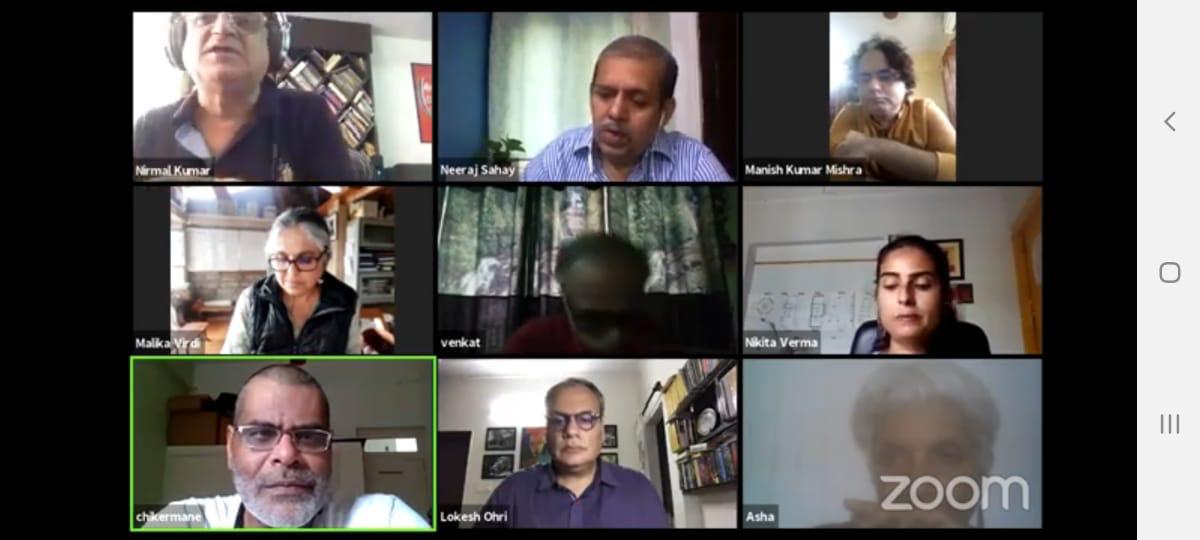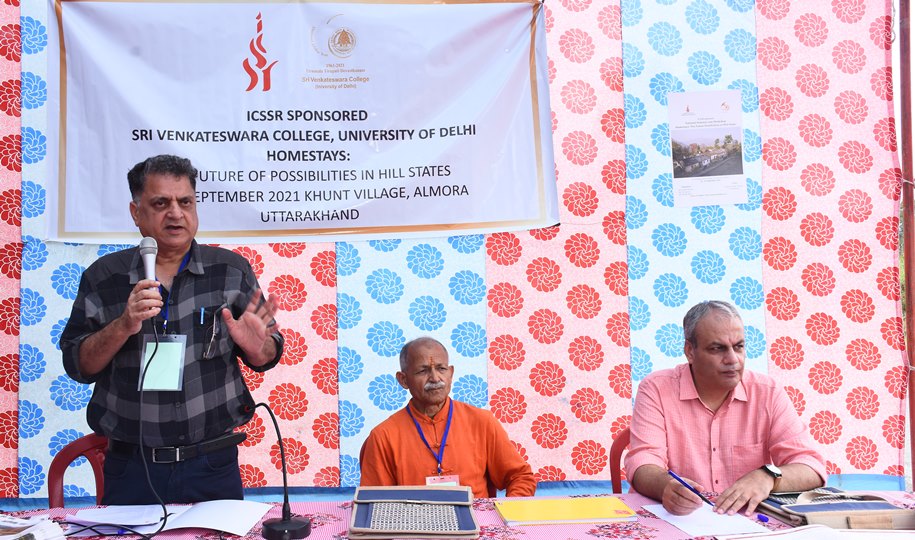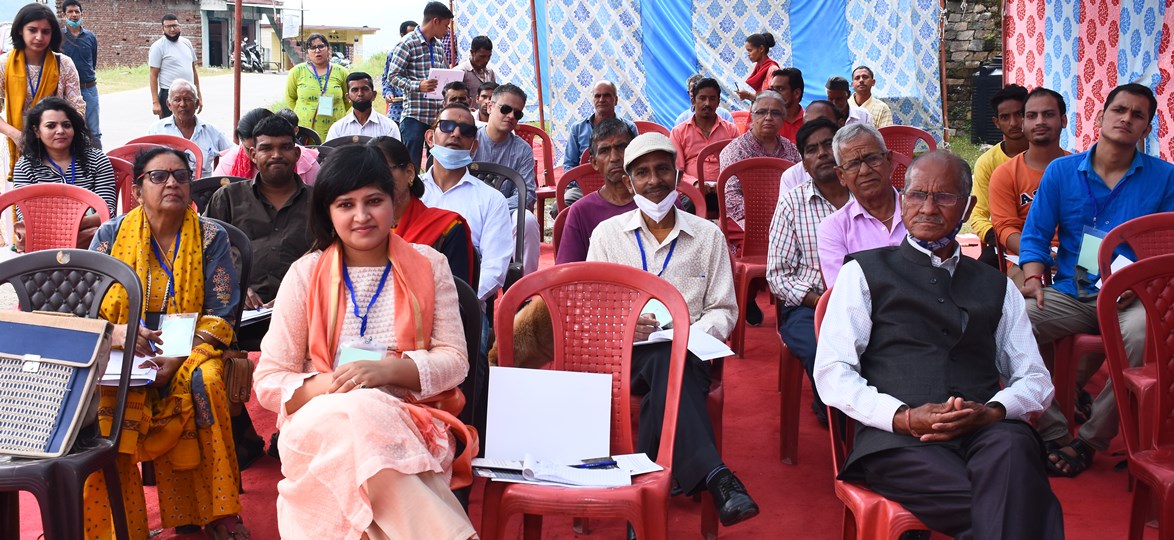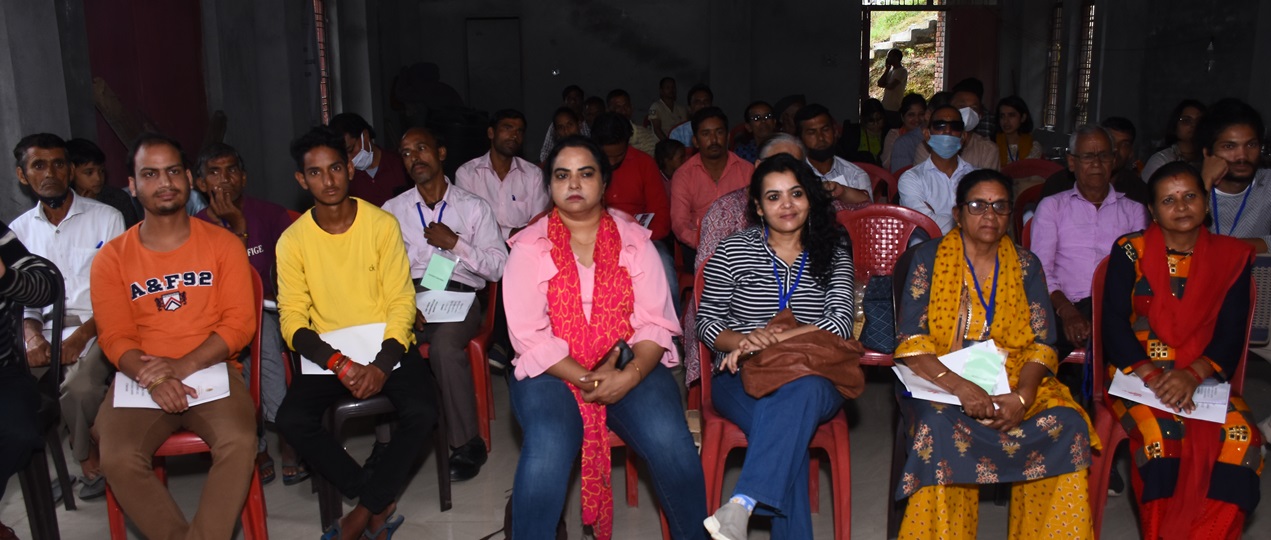Sustainable Tourism and Revival/Preservation of Hill Cultures and Ecology in abandoned Villages of Uttarakhand : |
|---|
National Mission for Himalayan Studies (NMHS), a nodal hub of Ministry of Environment, Forest & Climate Change (MoEFCC), Government of India, approved a Small Grant(SG) for the Project entitled "Sustainable Tourism and Revival/Preservation of Hill Cultures and Ecology in abandoned Villages of Uttarakhand: A Pilot Project". The above mentioned Project was granted to seven teachers belonging to the History Department of Sri Venkateswara College, University of Delhi. The small grant was approved on 28.03.2018 for three years duration and further extended by another ten months. Dr. Nirmal Kumar, Professor in the History Department, is the Principal Investigator of the Project. The total cost of the Project is deemed at Rupees Fifty Lakhs only (Rs.50,00,000/-). |
National Mission for Himalayan Studies (NMHS), a nodal hub of Ministry of Environment, Forest & Climate Change (MoEFCC), Government of India, approved a Small Grant(SG) for the Project entitled "Sustainable Tourism and Revival/Preservation of Hill Cultures and Ecology in abandoned Villages of Uttarakhand: A Pilot Project". The above mentioned Project was granted to seven teachers belonging to the History Department of Sri Venkateswara College, University of Delhi. The small grant was approved on 28.03.2018 for three years duration and further extended by another ten months. Dr. Nirmal Kumar, Professor in the History Department, is the Principal Investigator of the Project. The total cost of the Project is deemed at Rupees Fifty Lakhs only (Rs.50,00,000/-). |
The main objectives of the Project are: |
|---|
To preserve the built heritage of hill villages by restoring the houses in their original shapes using traditional building materials that may include restoration of these houses as per aspirations of the end users, that is tourists, technical requirements like electrical wiring, central heating and workable kitchen/toilets; |
To make whole village as a unit and convert it into a home stay/heritage village; |
To encourage new shops and eateries to sustain these villages, all conforming to and congenial to the local village architecture and layout. |
The villages of Almora region were been surveyed and Khunt village, a Heritage Village model, was been chosen as the prospective village under the project. There are a number of abandoned houses in the village. Restoration work of the houses has been completed to make them in a liveable condition and then rain water harvesting was also undertaken to tackle the problem of scarcity of water in the village. Use of local expertise and traditional material to restore the houses with active participation of the owners of these houses made the real difference. We made detailed DPR with the help of a qualified architect to ensure that the traditional way of making their houses, ensuring the lay outs were not at all altered while enforcing them for a future and continued habitations. |
Some of the measures taken for the preservation and restoration are as: |
• Preserving the traditional architecture of the houses - Use of local artisans/workers, Use of traditional material. |
• Mapping the houses by taking pictures, measurements. |
• Replacing the damaged parts with the same material provided by the house owners to maintain continuity in built styles and patterns. |
• Working slowly by repairing one part of the structure at a time, ex. starting with repair of leaking roofs and then going further to better understand the structure repairs required. |
• Provide rain water harvesting and repair/construct toilets in every house of the project to encourage the villagers to follow the same. |
These houses shall hosts tourists/guests and shall run as Home Stays hence providing income options to the people of these villages and help reduce migrations from the region. Various other employment opportunities connected with the tourism aspect has been explored and trainings & workshops have been conducted in this regard to provide alternative livelihood practices such as mushroom cultivation workshop, workshops running the Home Stays, training in sustainability tourism hospitality businesses etc. |

